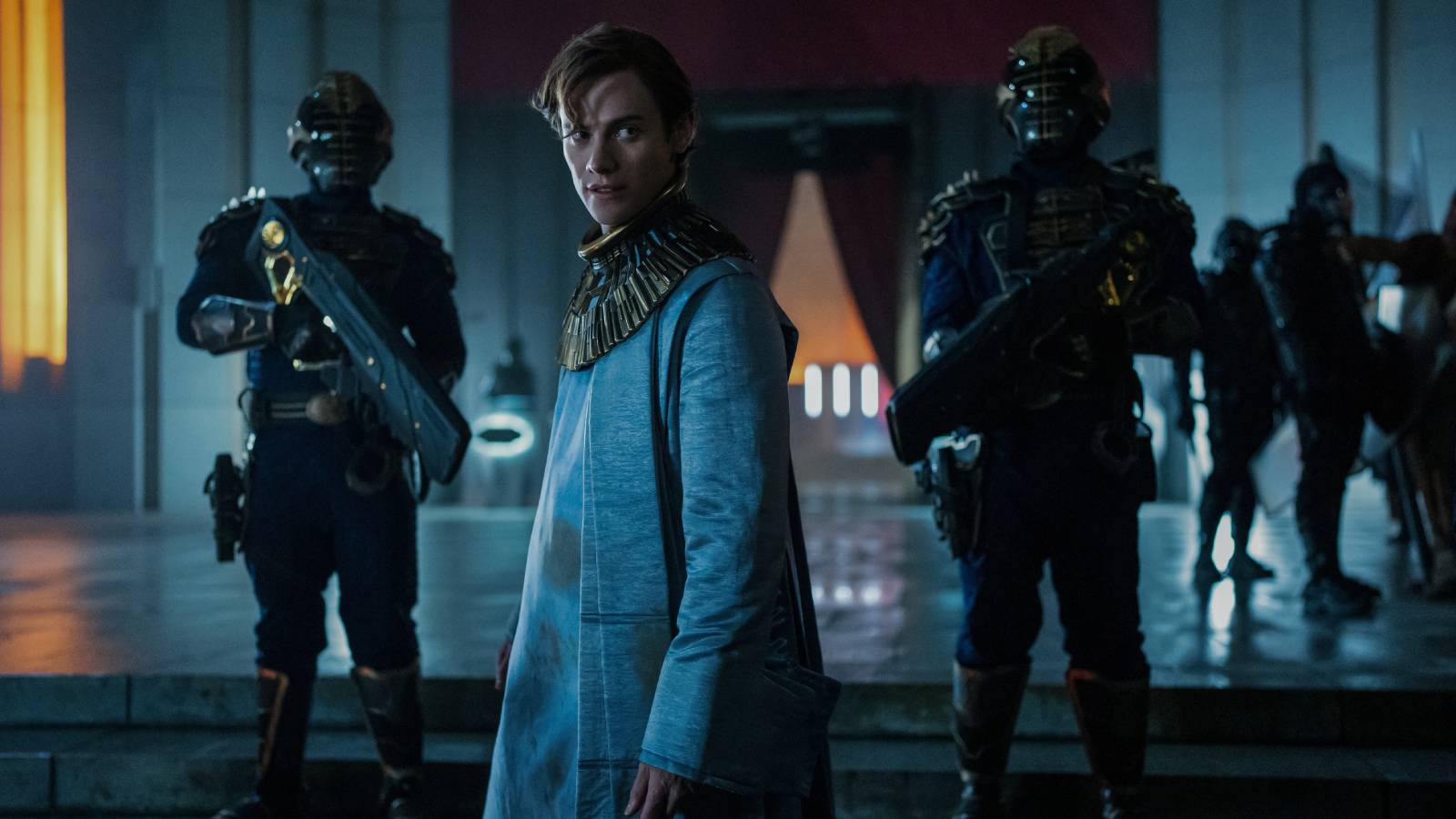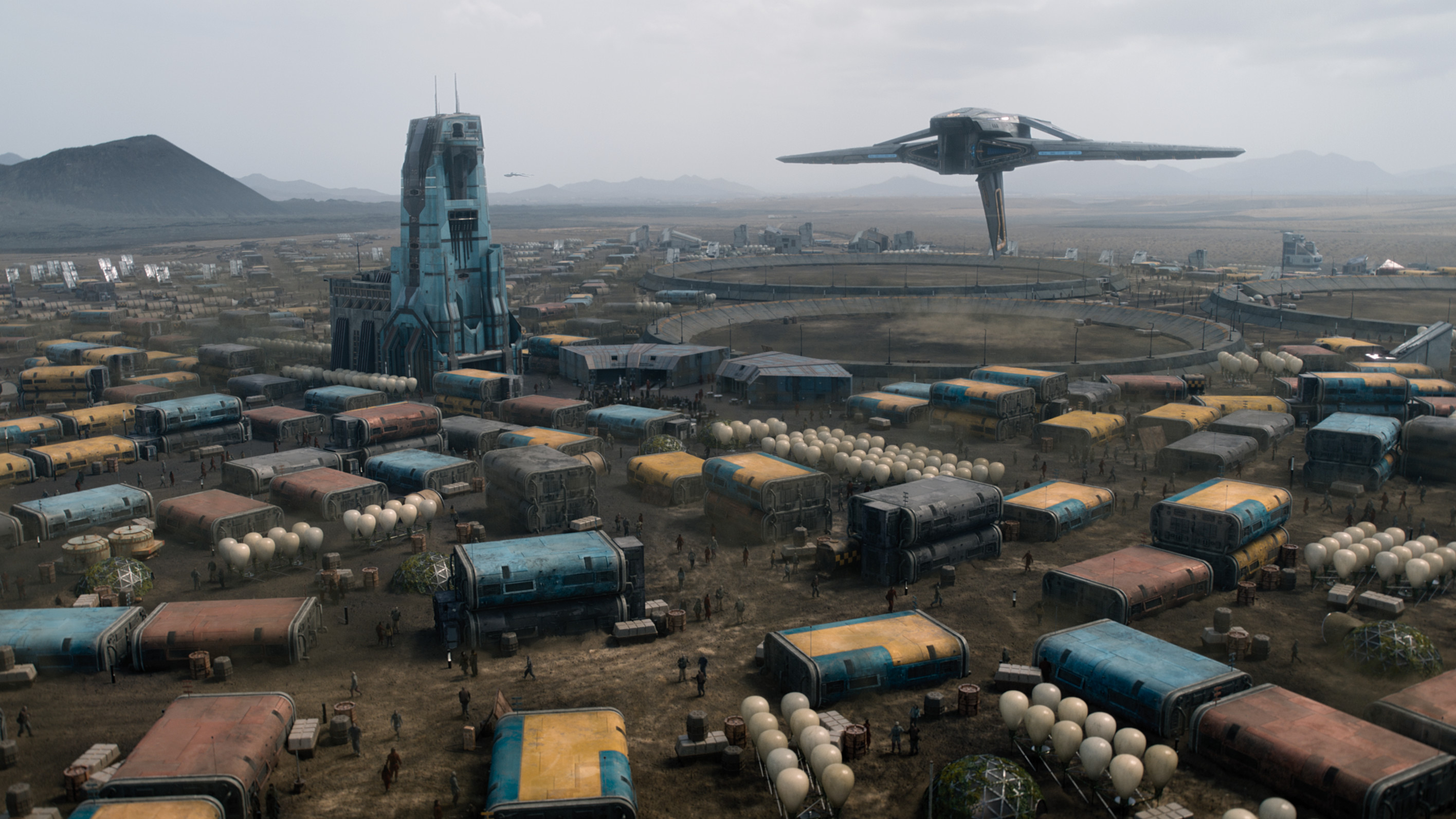Now that Foundation season 3 is here, people who’ve been enjoying the Apple TV Plus space opera might be wondering whether it’s worth reading the classic sci-fi texts that they’re based on. But it’s not as simple a question as for most book adaptations.
The hit TV show is an adaptation or interpretation of Isaac Asimov’s Foundation series of stories, a collection of short stories first written in the 1940s and since collected into a series of novels (and I’ll be referring to the series via the latter, as it’s how most readers read the books).
Over time Asimov made his series more complex, adding prequel and sequel texts as well as linking it to other book series he’d released, most notably Robot (which you may know as I, Robot is an adaptation of one such tale). Now, it’s hard to decide what’s required reading and what’s not.
But back to the TV show; if you prefer to read a book before you see its adaptation, does that stand true for Foundation? Let’s explore.

Do you need to read Foundation to watch the TV show?
In a nutshell, no.
That may be a controversial stance for most TV shows, but Foundation fans largely seem to agree on this point.
The reason is simple: Foundation is less an adaptation of the books, and more an interpretation or retelling of their core premise. It’s vastly different in countless ways, and that’s not a criticism of the show, as it seems something the creators intended and it works well.
Many of the core principles of the Foundation books don’t stand true in the show, and vice versa, and the reason seems to be that the novels are quite esoteric; to survive TV-ification, lots of elements need to be changed.
Take, for example, the structure. Particularly at the beginning, the novels are broken up into short stories that are spread apart in time and space. This would be hard to convey in a TV show, as we wouldn’t have any recurring characters.
The vast majority of the novels are told via internal narration or through long-winded speeches, again which wouldn’t translate well to the screen.
Foundation (the TV show) adds lots of elements that help us understand the changes in the universe over vast amounts of time. Hari Seldon being an AI intelligence instead of a simple projection, Gaal Dornick using cryosleep to survive centuries and the entire concept of the Genetic Dynasty for Empire ensures we can understand the universe through the eyes of repeat characters.
Plus, sci-fi trends and mores have changed; you wouldn’t catch something like The Quatermass Xperiment airing nowadays!
It’s best to enjoy the book and the TV show as two separate entities, perhaps with a few shared names and places, rather than as an adaptation. A possible exception is season 3 which, no spoilers, has many more encounters and scenes lifted straight from the books than past seasons.

Should you read the Foundation books?
Even though you don’t have to read Asimov’s books to understand the Foundation TV show, it’s well worth doing, because they’re still absolute classics of the genre.
By nature of the medium, some parts of the story are explored in much greater depth or detail than in the show.
Reading them, I personally enjoyed characters’ reliance on strategy, intellectual maneuvering and subterfuge in order to solve situations, rather than action or head-to-head conflict like in the show.
The concept of psychohistory is explored in a lot more detail, especially in later books, and I preferred the Second Foundation’s treatment in the novels than in the TV show too (it’s largely a mystery in the early books, instead of a thing we see formed).
When reading them, you’ll need to constantly remind yourself that it’s a different thing to the Foundation TV show though, lest you get confused about characters or plots.

Which Foundation books does the show draw from?
If you’re going to read the Foundation series and want to focus on the novels that are relevant to the show, there are some you should read and some that are less important.
The first three books are obviously the most important: Foundation, Foundation and Empire, and Second Foundation.
Each of the first three seasons of Foundation draw from each of these novels in different ways, and it’s not a straight ‘one novel to one season’ adaptation like in many other series. Elements introduced in the first episode are only mentioned late in book 3.
Lots of aspects of the show are also first introduced in Asimov’s universe via the prequel books: Prelude to Foundation and Forward the Foundation, the latter of which was Asimov’s final entry into the saga (it was published posthumously). This includes a lot more about central character Hari Seldon, and information about Empire which is scant in the original trilogy.
At the time of writing, the TV show doesn’t include much from the Foundation sequels which Asimov wrote later in life: Foundation’s Edge and Foundation and Earth, though if the series continues that could well change.

Nor does it include elements from the many Foundation-series books written by other authors, of which there are many.
Later in his career Asimov linked the Foundation books to other series he’d written, though he himself admitted that they aren’t totally consistent. But the Foundation show creators have included elements of some.
By that I’m referring to the Robot series: The Caves of Steel, The Naked Sun, The Robots of Dawn and Robots and Empire, which introduced the now-famous laws of robotics which have been described in the Foundation TV show. These are all set tens of thousands of years prior to Foundation, but there are a few links (like the introduction of the Spacer faction of genetically-modified humans).
Also set far in the past, but linked to the Foundation books more explicitly, is the Galactic Empire series which chart the early days of the creation of the Empire. These are The Stars, Like Dust, The Currents of Space and Pebble in the Sky.
Beyond those there are a handful of stand-alone books and countless short stories, but I’ve already listed 14 books for you to add to your reading list
